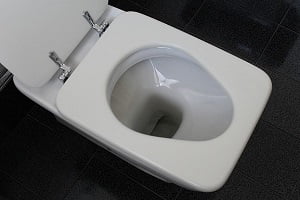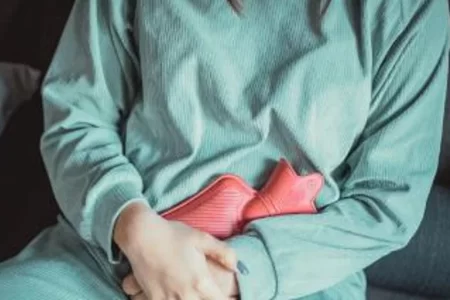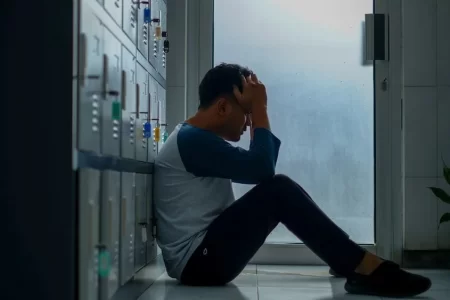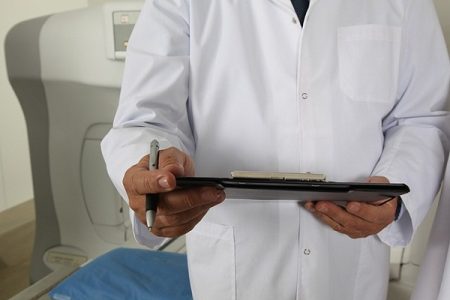Hemorrhoid Pain: How Can Piles Pain Be Relieved?
- Updated on: Jul 15, 2024
- 6 min Read
- Published on Oct 3, 2019

Hemorrhoids
Hemorrhoids involve swelling of blood vessels present in the walls of smooth muscles of anus and rectum. They are commonly known as piles. The most common symptoms of hemorrhoids include painless bleeding, anal itching, pain and swelling or feeling of a lump at the anus.
Many people experience mild to severe pain due to hemorrhoids which makes the condition highly uncomfortable.
Do hemorrhoids cause pain? How to relive hemorrhoid pain?
Hemorrhoid pain is usually mild in most cases and can be easily controlled with simple home remedies such as dietary changes, sitz bath and over-the-counter medications. If the pain is unbearable, a treatment of the condition may be needed. The treatment depends on the type of hemorrhoid a person may have. For example, a thrombosed external hemorrhoid contains a blood clot which requires removal to treat the condition. Surgery is needed for treating internal and external hemorrhoids.
Patients suffering from constipation require high-fiber diet, adequate hydration and stool softeners to deal with hemorrhoid pain. Patients undergoing frequent bowel movements require anti-diarrheal medications and dietary modifications to soothe from piles pain.
More: How Long Do Hemorrhoids Last?
More: What Do Hemorrhoids (Piles) Look Like?
Home remedies for hemorrhoid pain relief
Hemorrhoid pain and itching can be easily reduced by simple home remedies. These steps will help reduce constipation and decrease the severity of hemorrhoid symptoms. Some common methods one can consider at home are:
Warm Sitz Baths
Warm sitz baths involves sitting in few inches of luke warm water for about 15-20 minutes. This should be repeated three times in a day and every time after a bowel movement. It helps in decreasing inflammation in hemorrhoids and also reduces itching, irritation and spasms of sphincter muscles. Addition of Epsom salt in water will provide further relief from piles pain.
After a warm bath, you should always pat dry the anal area gently to reduce irritation in the skin surrounding the anus region.
Always use unscented soap to clean the anal region and never scrub the area.
Dietary Changes
Fiber consumption should be increased as it helps in reducing the chances of developing constipation and also reduces pressure on the rectum and anus region during a bowel movement. Fibers soften the stool and allow its effortless discharge. Dietary changes will help reduce swelling, discomfort and bleeding. Read about bleeding hemorrhoids.
With consumption of dietary fiber supplements like psyllium, stool can be bulked up in the body. Fiber supplements are available as powders, capsules and liquid, that may be consumed once or upto thrice in a day.
Foods rich in fiber are beans, cereals, fresh fruits and vegetables. Do not add too high fiber content in your diet as it may cause gas and bloating in the stomach. You should consume about 25-30 grams of fiber every day.
Increased fluid intake
You should stay well-hydrated, as it makes the stool softer and allows it to easy pass through the body easily. Drink plenty of water throughout the day and you can also consume a natural laxative such as prune juice.
Stool Softeners
Stool softeners are extremely helpful for soothing hemorrhoid pain as they increase the water and fat content in the stool and allow them to pass easily. The most commonly recommended stool softener is docusate sodium.
Exercise
Exercise such as brisk walking for about 20-30 minutes daily will benefit by relieving constipation and decreasing pressure on hemorrhoidal veins.
Rub on Relief
Rub on relief involves use of over-the-counter wipes or creams containing witch hazel. Wipe and creams help in soothing hemorrhoid pain and itching, and does not have any side effects. Creams or wipes containing hydrocortisone should only be used if recommended by a doctor, as it can damage the skin.
Ice Packs
A small pack of ice can be placed on the area causing pain for several times in a day, about 15 minutes each. Ice packs help in reducing pain and swelling and hence provide relief for a short duration of time. Ice packs or cold compresses are immensely beneficial for large, painful hemorrhoids. You should wrap ice in a cloth or towel and then apply on the affected area. Never apply frozen substance on the skin directly.
Witch Hazel
Witch hazel is a liquid solution and is a natural anti-inflammatory substance. It provides relief from itching and pain, which are the major symptoms of hemorrhoids. The liquid can be directly applied on the hemorrhoid, which results in the reduction of swelling around the anus region. It is also available as anti-itch wipes and soaps in the market.
Aloe Vera
According to Cleveland clinic, aloe vera has anti-inflammatory properties and is extremely beneficial in treating inflammatory skin diseases. Pure aloe Vera gel should only be applied on hemorrhoids. You should consult a doctor before using aloe Vera gel, as some people are allergic to it.
See also: Hematochezia: What Does Blood in Stool (Pooping Blood) Indicate? Is it Hemorrhoids?
Medical treatment for easing hemorrhoid pain
Home remedies are best for treating hemorrhoid pain but if they do not help in soothing pain, then you should consult a doctor. The doctor may recommend any of the following to help relieve hemorrhoid pain and treating grade 1 hemorrhoids.
Over-the-Counter Medications
Over-the counter medications include certain creams, ointments and suppositories which help in relieving from hemorrhoid symptoms such as pain. These medicines usually contain small amounts of local anesthetics. They do not cure hemorrhoids but help in reducing the inflammation and swelling in the anus region.
Some commonly available medications for this purpose include Preparation H (phenylephrine hemorrhoidal gel), anusol and witch hazel.
Diabetes patients should only use recommended over-the-counter medications for piles pain. If the medication contains a vasoconstrictor such as phenyleprine HCL, ephedrine or epinephrine, it may elevate the blood glucose levels, which may be risky.
In certain cases, doctors may recommend lidocaine and hydrocortisone for piles pain relief. Don’t use hydrocortisone containing medication for more than a week at a time.
Certain over-the-counter medications are also recommended by doctors such as acetaminophen, aspirin and ibuprofen which decrease hemorrhoid pain.
Treat the blood clot
Blood clots in external hemorrhoids are extremely painful. You can deal with hemorrhoid pain using some home remedies, which may reduce the clot on its own or through surgical removal if the pain is intolerable.
Prolapsed Internal Hemorrhoid Pain Treatment
Most of the prolapsed internal hemorrhoids can be pushed back into the anus, but the doctor may prefer to reduce them by gently pushing them back with constant pressure. If internal hemorrhoids remain swollen and trapped outside the anus, then they do not receive sufficient blood and may get infected. In such a situation, they can be only removed through a surgery.
Thrombosed Hemorrhoid Pain Treatment
Thrombosed external hemorrhoids are extremely painful and consist of a hard lump near the anus, which cannot be pushed back inside. To provide relief from thrombosed external hemorrhoid pain, doctors may recommend rubber or air rubber donut.
Mostly, the clot present inside the hemorrhoid needs to be removed through a small incision using a scalpel. The removal of clot provides instant relief from the sharp hemorrhoid pain, but a dull pain may still continue in some cases.
After the removal, hemorrhoids may bleed for a few days. Your doctor may recommend sitz baths and some over-the-counter medication to provide comfort from the symptoms of bleeding hemorrhoids.
Internal Hemorrhoid Pain Treatment
Internal hemorrhoids do not exhibit any symptoms generally and are known as painless hemorrhoids. They produce symptoms only when bleeding starts. Bleeding or prolapsed internal hemorrhoids are easily diagnosed and home remedies are recommended to control the symptoms. If they involve severe bleeding or if the prolapsed condition does not improve, a surgeon may consider aggressive treatment methods to treat them.
External Hemorrhoid Pain Treatment
External hemorrhoid occurs due to the presence of excessive skin tags which makes it difficult to clean the anus area after passing stool. Such hemorrhoids are removed through surgery.
More: Hemorrhoids VS Colon Cancer – Is It Hemorrhoids or Colon Cancer?
More: What Is Hemorrhoidectomy For Hemorrhoids (Piles)?
What steps can be taken to deal with piles pain?
You can carry out certain measures which may prevent onset of piles pain and occurrence of other hemorrhoid symptoms. These measures are as follows:
- Do not sit on the toilet seat for longer duration
- Avoid sitting for longer duration during work. After every one hour, take a 5 minutes break.
- Never rub or scrub the anal region where internal or external hemorrhoid may be present. Use pre-moistened wipes, cotton balls or alcohol free baby wipes to clean the anal region.
- Never scratch the hemorrhoid as it may lead to damage of the skin and increase irritation in that area.
- Try wearing loose, soft cotton underclothes, as they help in keeping the anal region airy and do not allow moisture to build up. Moisture causes trouble to the hemorrhoids.
- Immediately pass the stool out as you feel an urge for a bowel movement. Delaying bowel movement can result in constipating the stool and cause more straining and pressure on the hemorrhoid.
- Make a routine to defecate on a daily basis, by sitting on the toilet seat at the same time of the day regularly.
- You can sit on an air or rubber donut or any cushion surface to sooth your hemorrhoid pain. Soft surfaces ease swelling due to hemorrhoids and also reduce formation of new ones. These tools are easily available at any local pharmacy around you.
- You can try a squat position during a bowel movement. Squat position involves placing a short bench or stack of book under your feet. This will raise your knees while sitting on the toilet seat and allow easier bowel movement.
- Avoid consumption of certain foods such as citrus fruits, spicy foods, alcohol and caffeine.
- Reduce salt in your diet as high salt content can increase water requirement of the body and create pressure on blood vessels causing hemorrhoids.
- You should consume iron supplements only if recommended by the doctor, as they lead to constipation and other digestive problems.
- Never use toilet paper to clean the area after bowel movement as it may aggravate the existing hemorrhoid.
- You should not use perfumed detergents or fabric softeners to reduce irritation.












